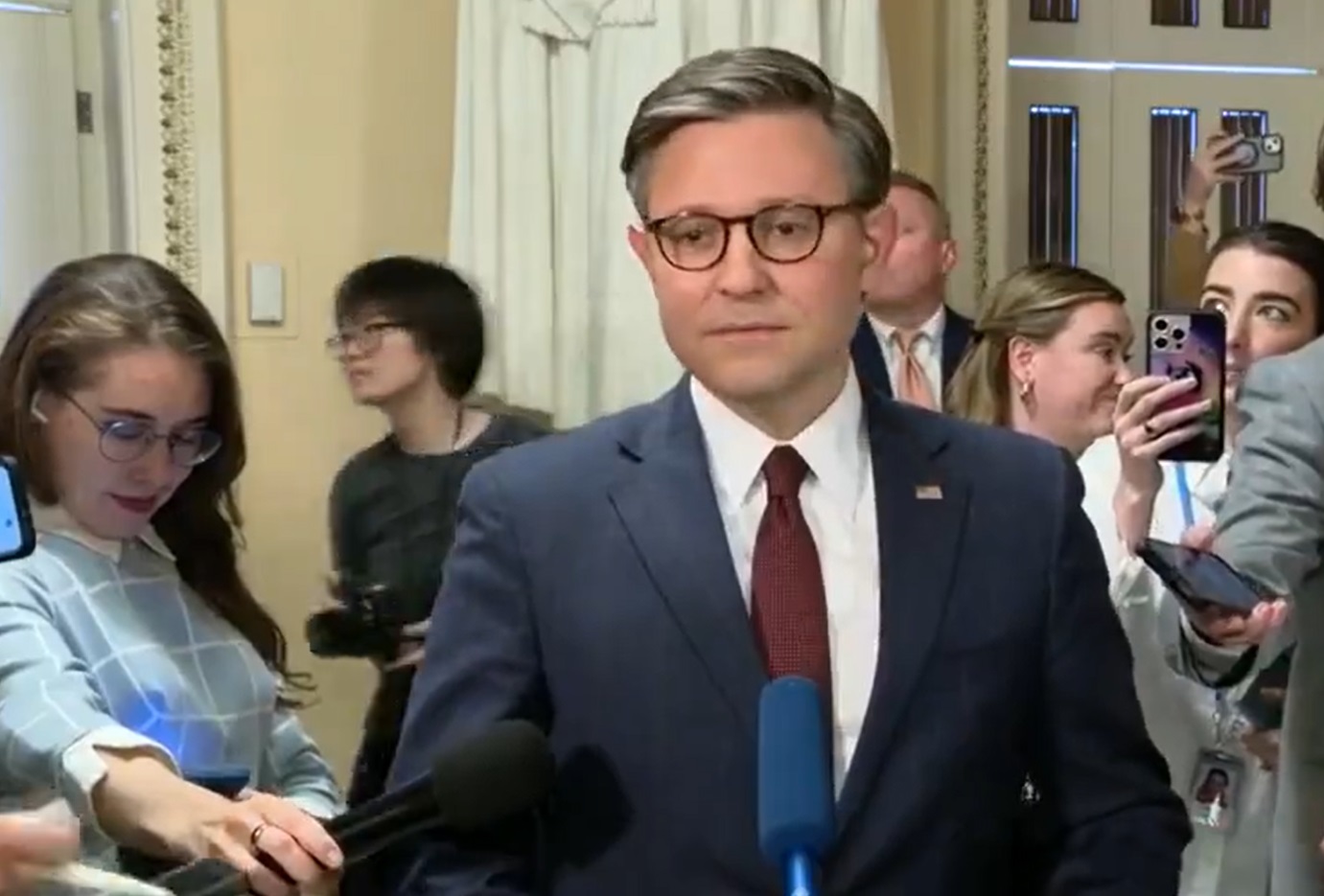Miracle on Capitol Hill

The US House of Representatives has swiftly concluded a nearly six-month process of approving an aid package aimed at supporting Ukraine, Israel, and Taiwan. Discussions are set to continue in the Senate, but most analysts believe there will be no significant obstacles, as the upper chamber has previously demonstrated support for this programme.
A protracted saga surrounding support programmes for countries suffering under autocratic regimes (Ukraine, Israel) and those in high-risk zones (Taiwan) seems to be drawing to a close. This issue has been ongoing since autumn 2023. Over recent months, Republican congressmen have vigorously opposed the passage of any such bills, offering a multitude of arguments. They demanded stringent anti-immigration measures as a precondition and cited the need to save taxpayers' money. Ultimately, they attempted to undermine the electoral positions of their political rivals.
The situation seemed intractable until April 2024 when events rapidly progressed. On April 20, the bill for Ukraine, valued at $60.8 billion, was passed with 311 votes in favour (Republicans: 101, Democrats: 210) and 112 against (Republicans: 112, Democrats: 0); one Republican congressman abstained. Several amendments proposed by Republican congressmen, which effectively torpedoed the very idea of the act, were not supported by Congress.
Interestingly, at the crucial moment, Donald Trump, who had previously criticized this bill severely, supported Republican House Speaker Mike Johnson, who decided to push it to a vote. On April 12 and 18, Trump stated on social media that Ukraine's survival was crucial for the US. Thus, he supported his party colleague Johnson, who, like his predecessor Kevin McCarthy ousted in autumn 2023, risked being removed from his position as speaker.
Why did the Republicans change their stance on the aid package for Ukraine? Several reasons converged. Firstly, the Russian Federation is increasingly attacking the US's international positions, directly in Europe and indirectly through other members of the so-called 'axis of evil'. Secondly, regardless of the outcome of the US presidential elections, the Republicans certainly do not want to be seen as a force contributing to destabilisation in Europe and the Middle East.
It is no surprise that the House of Representatives was more united concerning other support programmes. A significantly less costly bill for Israel, amounting to $26 billion, was passed with 366 votes in favour (Republicans: 193, Democrats: 173) and 58 against (Republicans: 21, Democrats: 37), with some funds allocated for humanitarian needs of Palestinians.
The US Congress also has passed a significant aid bill, allocating $8.12 billion to support Indo-Pacific countries, primarily Taiwan. A commanding majority of 385 congress members voted in favour, with 178 Republicans and 207 Democrats supporting the bill. Only 34 congress members, all Republicans, voted against it.
Additionally, the Congress approved another bill encompassing measures such as restrictions on the Chinese-owned video platform TikTok and provisions to transfer seized Russian assets in the US to Ukraine. This bill was passed with 360 votes in favour (186 Republicans and 174 Democrats) and 58 against (25 Republicans and 33 Democrats). The assets involved are estimated to be worth between $5 billion and $8 billion.
These bills, which have been at the centre of pre-election controversies for nearly six months, are now combined into a single package for Senate consideration. This move follows a previously agreed procedure. The Senate is set to review these as amendments to the US International Aid Bill HR.815, which was passed in February 2024. President Joe Biden is expected to sign the package into law this week, as has been repeatedly emphasized.
The most intriguing aspect of the Ukrainian aid package, valued at $60.8 billion, is that only just under $8 billion will directly reach the Ukrainian budget from this total amount:
- $23.2 billion allocated to replenish US defense stocks and services in place of those provided to Ukraine;
- $11.3 billion is allocated for current US operations in the region;
- $13.8 billion will go towards purchasing modern defence systems and services;
- $1.6 billion in Foreign Military Financing (FMF) will meet the needs of Ukraine and other regional partners;
- $26 million is designated for oversight and accountability of the assistance and equipment provided to Ukraine;
- $5 million to the State Department for administering defence aid;
- $300 million to aid Ukraine in border protection and law enforcement;
- $100 million to support demining, counter-terrorism, and non-proliferation of weapons of mass destruction;
- $7.849 billion in economic assistance to Ukraine, including direct budget support (not for pension payments);
- $1.575 billion in other economic aid for Ukraine and other affected countries;
- $25 million to USAID's Office of Transition Initiatives for supporting Ukraine and countries impacted by the Russian invasion;
- $50 million to address global food security issues;
- $149 million to the US National Nuclear Security Administration for nuclear safety in Ukraine;
- $481 million to the US Department of Health and Human Services to support Ukrainians receiving humanitarian aid through the U4U program.
"The mentioned $13.8 billion in the new supplementary budget is proposed for the USAI programs. This program is for Ukraine only and it’s used by the Pentagon to purchase all new equipment for our armed forces," explains Oksana Markarova, the Ukrainian Ambassador to the USA.
What are the next steps? The first Senate vote is scheduled for 23 April.
"There are always some procedural possibilities to delay or block the legislation review. However, both Leader Shumer and Leader McConnel assured us that the Senate will review it in the shortest possible way. With such powerful bipartisan support I am positive that the vote on the Ukraine supplemental could be completed on Tuesday as planned," hopes Oksana Markarova.